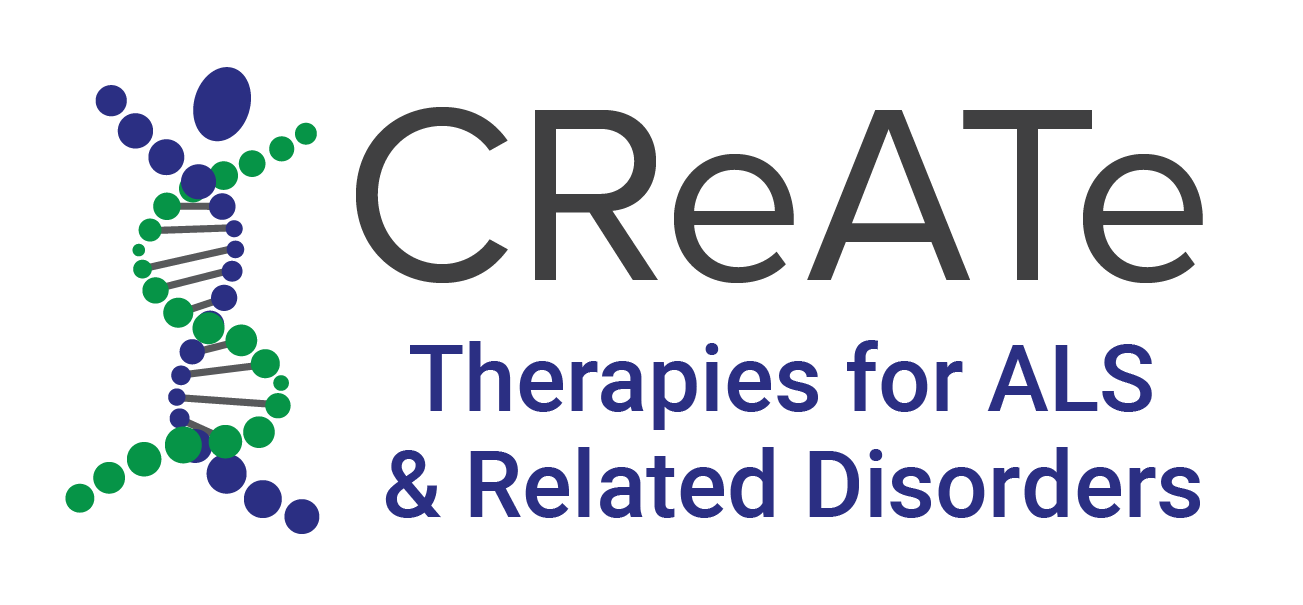Study Summary
The Phenotype-Genotype and Biomarker Study of the CReATe Consortium will prospectively and systematically study approximately 700 patients with amyotrophic lateral sclerosis (ALS) or a related neurodegenerative disorder (listed further below). The study is broadly inclusive, enrolling patients with both familial and sporadic forms of disease. All enrolled patients will undergo five in-person evaluations at one of the CReATe consortium clinical sites as well as annual remote evaluations. In-person evaluations will include motor, cognitive and functional assessments as well as collection of biological fluids. Remote evaluations will focus on functional status and disease staging. Family members of patients with apparently sporadic disease (ie, no family history) may also participate through a remote-evaluation process in which they provide limited information about their medical history as well as biological samples (blood and urine). Every effort will be made to integrate study procedures into multi-disciplinary clinic visits to minimize the burden of participation on patients and their families.
For Diseases
- Amyotrophic lateral sclerosis (ALS)
- Frontotemporal dementia (FTD)
- Primary lateral sclerosis (PLS)
- Hereditary Spastic Paraplegia (HSP)
- Progressive Muscular Atrophy (PMA)
- Multi-System Proteinopathy (MSP)
Background
ALS and related neurodegenerative disorders are currently untreatable. One important reason may be that clinical trials in the past have regarded all ALS patients, for example, as having the same disease. With the growing recognition that ALS is a heterogeneous clinical syndrome with many different causes (rather than a unitary disease with single cause), it is increasingly clear that clinical trials should rather focus on subgroups of patients with shared disease characteristics (e.g. the same genetic cause of disease, or the same biological mechanisms that cause motor neurons to become sick and die).
The goals of this study are threefold. The first is to better understand the genetic contribution to ALS and related neurodegenerative disorders. The second is to prepare for a future of clinical trials in which potential treatments will be tested in patients who share certain characteristics such as a specific genetic cause of disease. The third is to develop biological markers that will aid testing of novel therapeutics. The first two goals will be accomplished by combining detailed information about the clinical symptoms and signs of disease (i.e. phenotype) with an in-depth understanding of an individual's genetic make-up (genotype). The third goal will be accomplished by laboratory testing of biological samples (blood, urine and spinal fluid) that are collected from study participants. Although the study protocol does not specifically involve testing any new treatments, all study procedures are directly relevant to therapeutic development.
About This Study
This longitudinal study will recruit approximately 700 people who are affected with ALS or a related disorder (primary participants). Patients with both familial and sporadic forms of these diseases will be enrolled. In addition, where possible, we will collect a blood sample and limited clinical information from family members of affected individuals (secondary participants); we expect to enroll ~700 secondary participants.
Study involvement (for primary participants) entails five in-person assessments over two years and annual remote assessments thereafter.
Study involvement (for secondary participants) entails a single remote assessment.
We will look at your medical records from your doctor’s office so that we can get information about your medical history.
Enrollment Criteria
- Have a clinical diagnosis of ALS or a related disorder, including but not limited to ALS-FTD, HSP, PLS, PMA or MSP.
- Be able and willing to comply with relevant procedures.
OR
- Be a blood-related family member of an enrolled affected individual.
How to Participate:
No longer recruiting participants.

